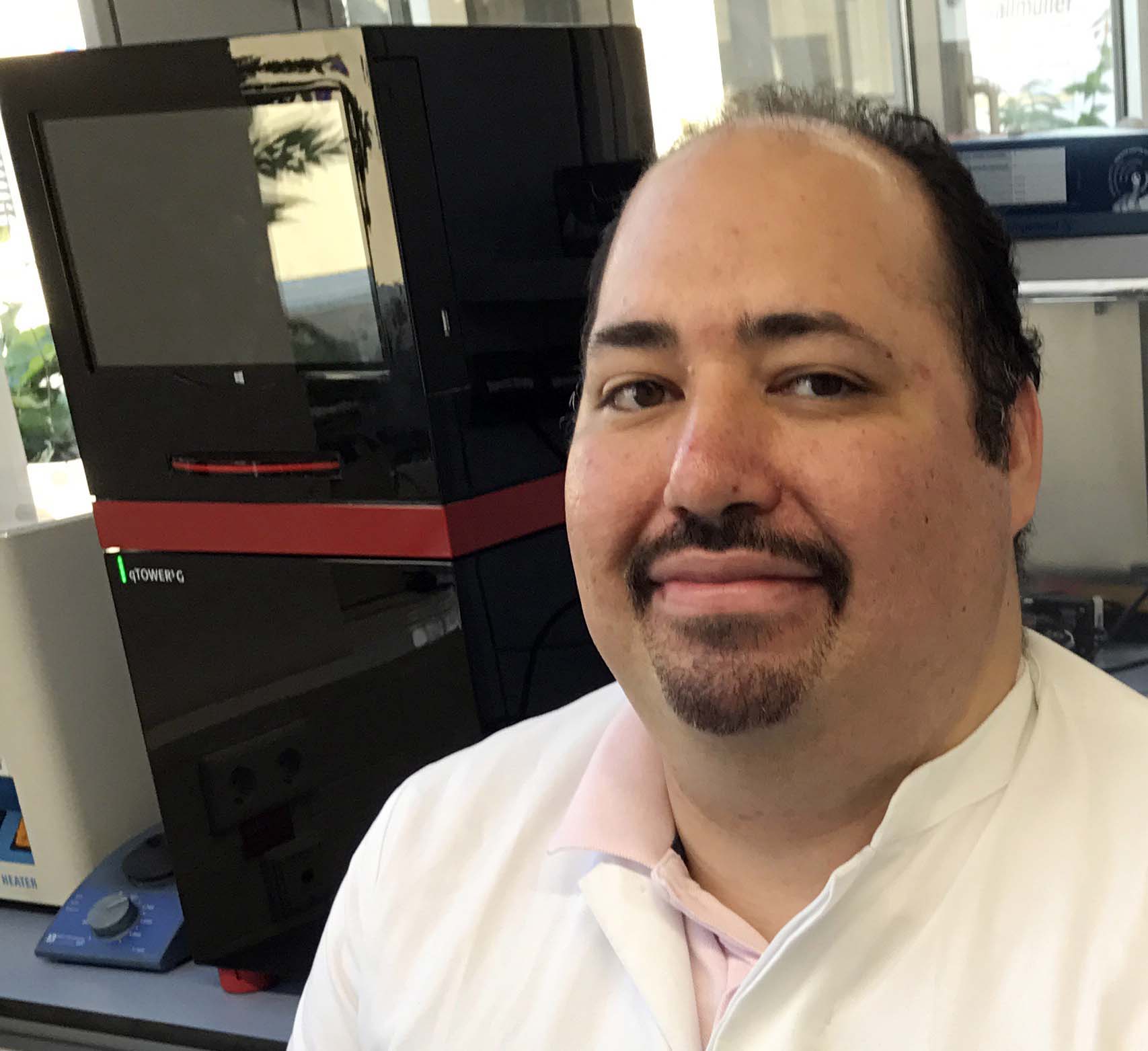26/07/2017
Print PageDr Borhane Guezguez: How the tumor creates its niche

Dr Borhane Guezguez leads a DKTK young investigator group at the University Cancer Center (UCT Mainz), part of Mainz University Medical Center. At the moment, his laboratory is empty, but he already has a wish list. First on the list is a machine that can be used to measure the metabolism of cancer cells. “Cancer cells are sugar monsters. They stimulate the energy levels in the surrounding cells so that they can divide unchecked, and encourage the growth of new blood vessels,” explains Guezguez, who has been setting up the DKTK’s young investigator group for cancer immunotherapy at the DKTK’s partner site Frankfurt/Mainz since 15 March 2017.
Guezguez and his colleagues recently demonstrated how cancer can be caused by changes to the cells’ glucose balance: when the researchers gradually deleted various glycogen synthase kinase 3 (GSK-3) gene variants, healthy blood stem cells in the bone barrow entered the preliminary stages of acute leukemia (AML) and eventually became aggressive AML cells. The GSK-3 enzyme is one of the key proteins in glucose homeostasis in cells and is evidently a suitable biomarker for advanced stages of leukemia. The activity of the GSK-3 beta gene variant was particularly low in patients with advanced stages of AML, according to the research paper published in Cancer Cell.
Guezguez sees an opportunity here to make use of the expression pattern of the GSK-3 gene for personalized AML treatment: “Reliable molecular biomarkers can help physicians decide whether a patient stands a good chance of recovery with chemotherapy alone, or whether they should consider a risky stem cell transplant as well.”
Guezguez brings to the DKTK proven expertise in the field of stem cell research. After completing his doctoral research at Pierre & Marie Curie University (UPMC) in Paris, he concentrated on the significance of bone marrow niche cells in the onset of leukemia. Niche cells in the bone marrow are responsible for the self-renewal of blood stem cells and ensure their survival. The hematopoietic stem cells (HSCs) in the niche are extremely interesting for stem cell transplants because they are highly regenerative and particularly well tolerated by the immune system. “However, we can only obtain a small quantity of them from the bone marrow,” says Guezguez, “so we are looking for ways of multiplying the cells in vitro.” To do this, Guezguez developed a new trial model at the Stem Cell and Cancer Research Institute at McMaster University in Canada. Using patients’ leukemia cells in PDX mice, researchers can investigate the survival and development of stem cells following a transplant. The researchers hope to find out in this way what kind of cell environment HSCs need in order to multiply and how they can be guided towards the ‘right’ differentiation path before a transplant.
With his DKTK group, Guezguez aims to discover new avenues for leukemia immunotherapy treatment and develop innovative approaches for stem cell transplants.